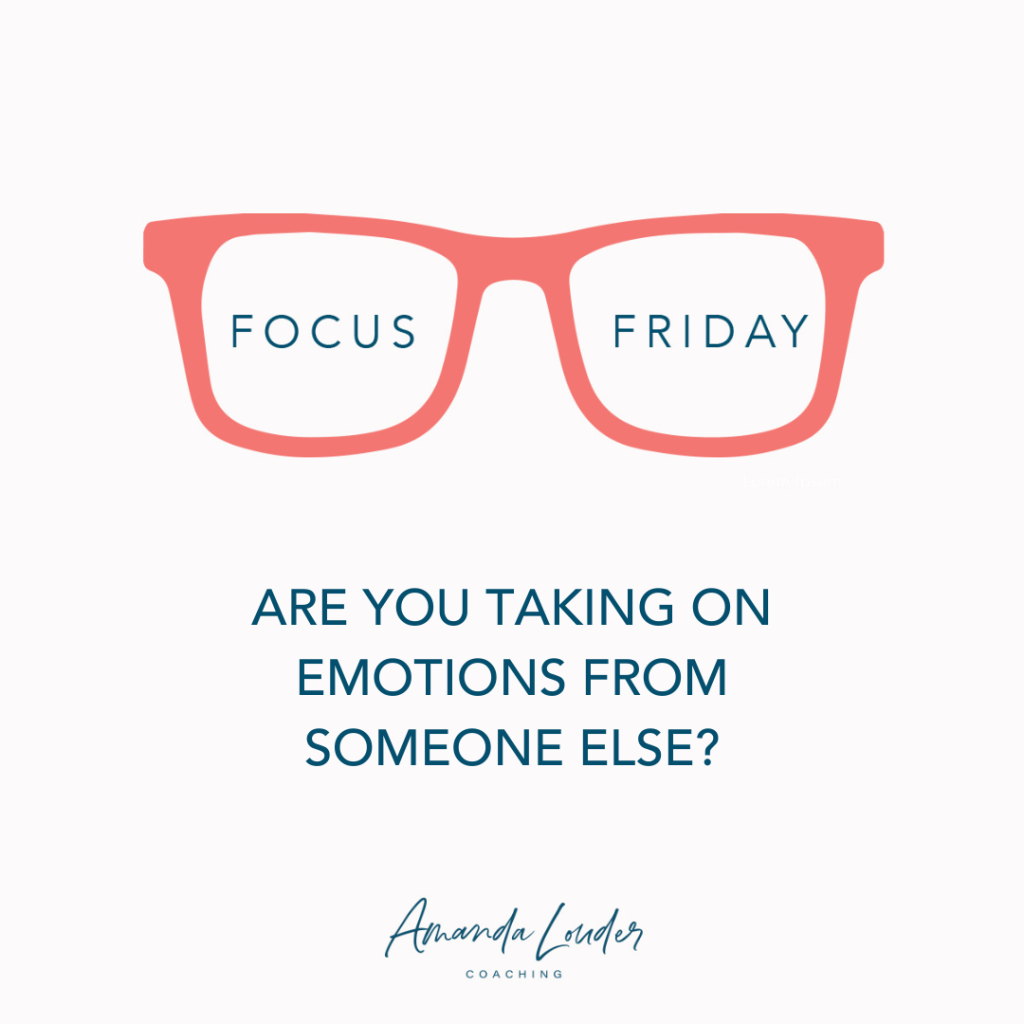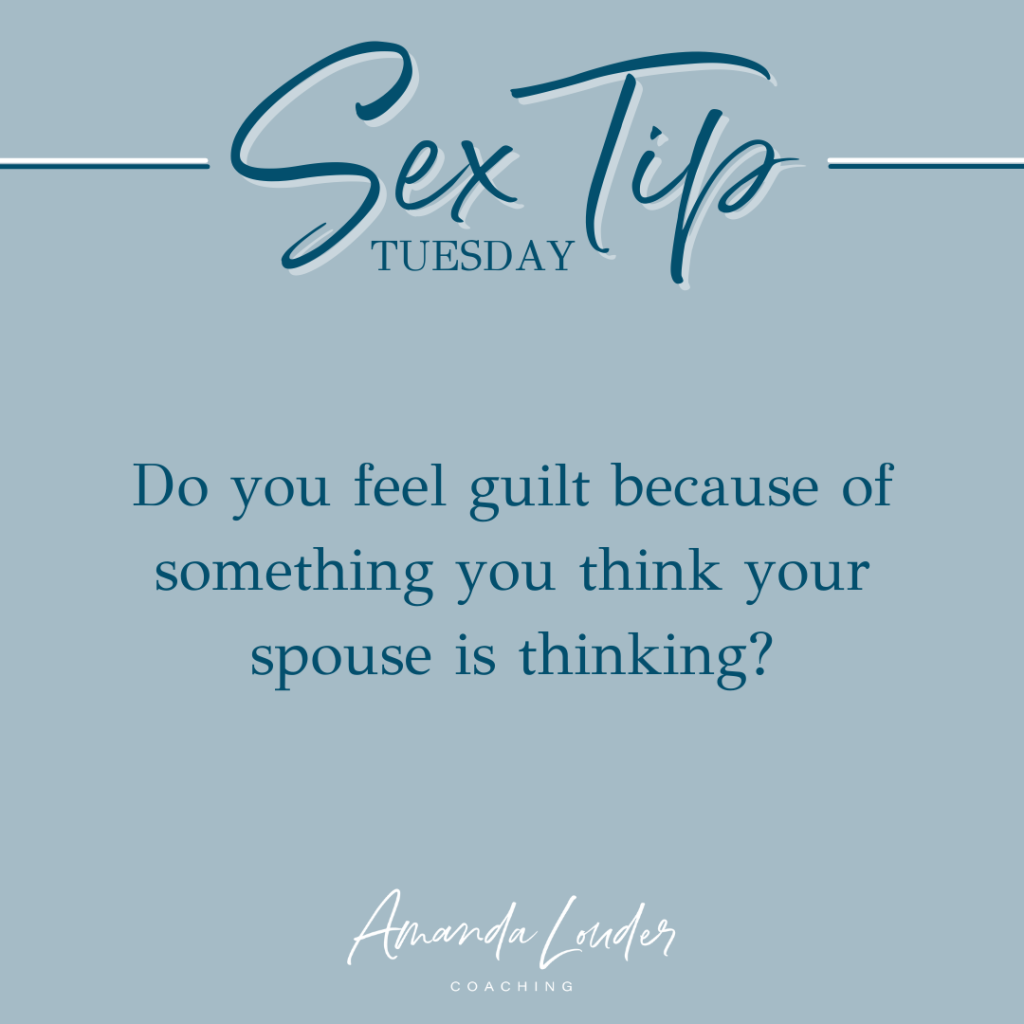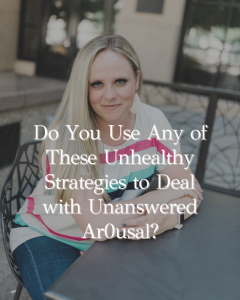
I often hear from my clients that they feel guilty about certain sexual things. When we really look into it, I question whether they’re feeling guilty, which to me means that they are doing something outside of their integrity, or are they internalizing someone else’s emotions about the subject. So in this episode, we’re going to talk about naming the emotion we’re feeling and if it really is guilt, how to change that feeling.
Show Notes:
Follow Amanda on Facebook and Instagram.
Join Amanda’s Private Facebook Group.
References for this episode:
Show Summary:
On a recent call in my membership, one of the members wanted to be coached on the guilt she felt about masturbation. She wanted to learn more about her body and what felt good to her so that she could share that with her spouse. But no matter what she did, touching herself and exploring herself felt very off limits and she felt a lot of guilt about it. On our call we explored what that guilt felt like in her body. She said it was a gnawing in her stomach. I think many of us can relate to that uncomfortable sensation in our body when we feel guilty. But what I would like to address today is that you might not actually be feeling guilt.
In Brené Brown’s book Atlas of the Heart she defines guilt as an emotion that we experience when we fall short of our own expectations or standards or when we’ve done something or failed to do something that doesn’t align with our values. I think we often feel guilty when we are out of integrity with ourselves. But, I asked my client if masturbation for the purpose of understanding herself better felt out of alignment for her. Did she feel out of integrity with herself? And she adamantly professed that she did not. She thought that the guilt had more to do with the conditioning that she had experienced her entire life around masturbation rather than how she actually felt today.
As I have pondered more on her situation and similar situations I have coached my clients on, as well as things I have experienced in my own life, I began to wonder if what she, others, and I had actually experienced was something other than guilt but we were just interpreting it as guilt.
I have found, and I have talked about this before on the podcast, that many of us do not have a very good emotional vocabulary. We often miss the nuances of emotion and how slightly different sensations in our body actually indicate different emotions than we are naming. It’s fairly typical to simplify what we are feeling down to happy, sad, fearful, angry, surprised, or disgusted. Or sometimes even just saying “I feel good” or “I feel bad.”But a lot of the time we miss noticing that things might be a little different than our typical emotions and therefore indicate a different emotion. So it makes sense that we might be mistaking the pit in our stomach as guilt when it actually isn’t. We just don’t have the emotional vocabulary to indicate otherwise. And the truth is, there might not even be a word for what we are actually experiencing. So the closest thing we can relate it to, is guilt, even though it actually isn’t.
So if it isn’t guilt we are feeling when we experience that gnawing in our stomachs, what is it? I think this sensation that we experience could be a lot of different emotions. And it might be a combination of things and not one single emotion that we are misinterpreting as guilt. It could be hesitation, nervousness, or even anxiety.
I was listening to the We Can Do Hard Things Podcast recently and they happened to be addressing this very thing, which I found to be quite fortuitous. They mentioned that this “not-guilt” emotion that we might be experiencing might actually be us taking on someone else’s discomfort or disappointment with our actions, and I think they could be on to something there.
Everyone’s feelings are their own. We do not make people feel any way, and no one else can put feelings inside of our own body. Yes, we definitely have influence over how others feel. We can do things that may result in someone else feeling a particular way. But that feeling is a combination of their own stories, experiences, and current environment.
So, if we are experiencing a sensation in our body that we interpret as guilt we need to ask ourselves “Is this guilt a result of me acting out of line with my values? Or am I taking on someone else’s possible disappointment about a decision I made or may make?” This is a really good question to ask yourself.
So in the case of my client, she clearly felt that she was not acting out of alignment with herself. But, because of what she had been taught her entire life about masturbation, it stands to reason that she was taking on the emotions of what someone else might feel if they knew she was doing this and it was against their values. Hence the “guilt” that wasn’t actually guilt she was feeling.
Let me give you another example I hear from clients that might illustrate this point even more. I have many clients who are more nuanced in their church membership or have even left the church altogether. But even though they have made decisions that feel good and right for them, their conditioning still affects them. I have coached many of them on feeling guilty around their family, particularly their mother, when it comes to their clothing choices that they wouldn’t have previously worn because of wearing garments. But, because of where they are now in their beliefs, they have chosen not to wear their garments sometimes or even at all anymore. But if they are around their mother, in say a tank top, this causes them a lot of what they think is guilt. It probably also causes them some anxiety about it as well. But even if they feel it is within their integrity to not wear their garments and wear a tank top, they feel guilty because they are taking on the disappointment that their mother COULD be feeling.
So, how can we learn to tolerate these feelings and work towards building new ways of thinking and being that serve us better?
First, you need to determine if you are actually feeling guilt or not. Ask yourself if what you are wanting or doing is out of alignment with your values and your integrity. If it is, what you are experiencing is guilt. This is a good notification that you may want to change things for yourself. Here are some strategies that may help you overcome guilt:
- Acknowledge and accept your guilt: Recognize and accept that you are experiencing guilt. Understand that guilt is a normal emotion that can serve as a signal for personal growth and change.
- Identify the source of guilt: Reflect on the specific actions, behaviors, or situations that have led to your feelings of guilt. Understand why you feel guilty and how it aligns with your values and beliefs.
- Take responsibility and make amends (if necessary): If your guilt stems from a specific action or behavior that has harmed someone else, it’s important to take responsibility for your actions. Consider making amends, apologizing, or taking corrective measures to the best of your ability.
- Learn from the experience: Use guilt as an opportunity for personal growth and learning. Reflect on what you can learn from the situation, how you can prevent similar situations in the future, and how you can make better choices aligned with your values.
- Practice self-compassion: Guilt can be a heavy burden to carry, and it’s important to be kind to yourself. Understand that everyone makes mistakes, and it’s part of being human. Treat yourself with compassion, forgive yourself, and focus on personal growth rather than dwelling on self-blame.
- Let go and move forward: After taking responsibility, making amends, and learning from the experience, it’s important to let go of excessive guilt. Holding onto guilt for extended periods can hinder your personal growth and well-being. Remind yourself that you have done what you can to address the situation and focus on moving forward.
- Seek support if needed: If you’re struggling to overcome guilt on your own, it can be helpful to seek support from a trusted friend, family member, or a coach or therapist. They can provide guidance, offer a different perspective, and help you work through your feelings of guilt.
Remember, overcoming guilt takes time and effort. Be patient with yourself as you navigate this process and remember that personal growth is a journey.
If you determine that what you are experiencing is not guilt, but emotions that you are taking on, think about giving that person’s feelings back to them, metaphorically. Are you taking on emotions from your parents? From your spouse? From your kids? From your church leaders? You do not need to take on the emotions of others. This isn’t mean or selfish, but it’s putting things back where they actually belong.





